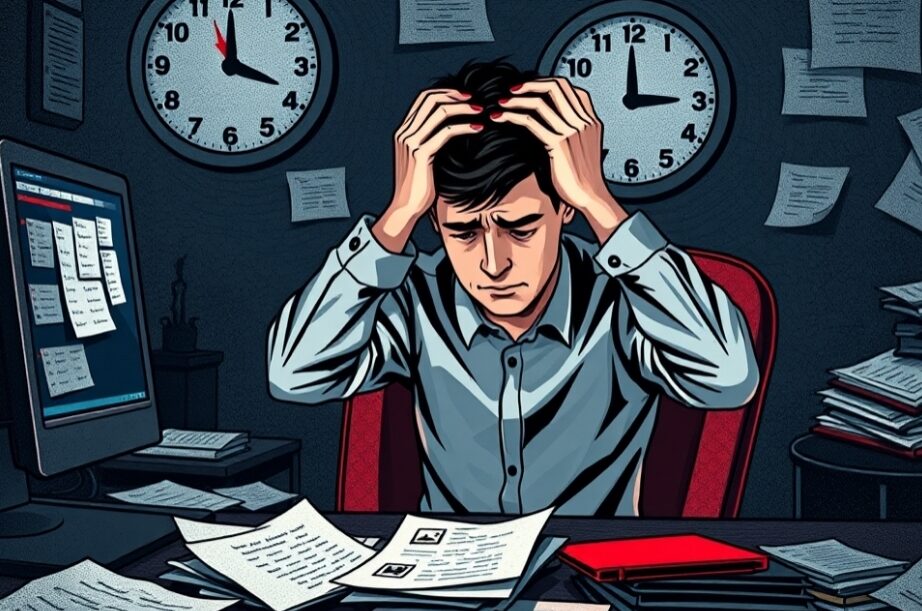Table of Contents
“Stress is not what happens to us. It’s our response to what happens.” – Maureen Killoran

Everyone experiences stress from time to time due to the pressures of life; however, chronic stress negatively impacts both physical and mental health. Therefore, stress management is essential to prevent its escalation and avoid complications. Stress treatment includes various strategies and natural methods that aid in relaxation and improve mood.
In this article, discover natural ways, including exercises and foods, that contribute to stress relief, along with techniques that help with relaxation and mood enhancement.
Symptoms Of Stress
A person experiencing with pressure may suffer from any of the following symptoms:
Emotional Symptoms
- Feelings of frustration and irritability.
- Intense pressure and a sense of losing control.
- Difficulty relaxing and clearing the mind.
- Negative self-perception (low self-esteem).
- Feelings of loneliness and depression.
- Avoidance of others (social withdrawal).
Physical Symptoms
- Feelings of low energy.
- Headaches.
- Stomach issues, including diarrhea, constipation, and nausea.
- Muscle pain and tension.
- Chest pain and rapid heartbeat.
- Insomnia.
- Frequent colds and infections.
- Decreased libido or sexual dysfunction.
- Nervousness and tinnitus (ringing in the ears).
- Sweating and cold extremities.
- Dry mouth and difficulty swallowing.
Cognitive Symptoms
- Persistent anxiety.
- Racing thoughts.
- Forgetfulness.
- Inability to concentrate.
- Poor judgment.
- Pessimism and seeing only the negative side of things.
Behavioral Symptoms
- Changes in appetite (increase or decrease).
- Procrastination and avoidance of responsibilities.
- Increased use of alcohol, drugs, or cigarettes.
- Displaying more nervous behaviors, such as nail-biting or fidgeting.
Stress Management
However, the solution may not always involve resorting to medications and drugs. There are some daily methods to cope with anxiety and alleviate it in both the short and long term, which we present here. We emphasize that the advice provided is for guidance only and is not a substitute for professional medical advice. If you are experiencing ongoing anxiety and stress, please consult a doctor.
Mental Relaxation
If you are struggling with negative thoughts and anxiety, it is important to allow your mind to rest and redirect your thoughts. Asking yourself questions such as “Do I really need to complete this task today?” or “What is the worst thing that could happen as a result?” can be helpful in warding off fears and anxiety.
Self-Encouragement
Before going to bed or after waking up, you can write down positive affirmations such as “I believe in my abilities” and say them aloud. By internalizing these beliefs, you can enhance your self-esteem in the long term and reduce stress.
Additionally, repeat these affirmations before tackling work tasks. You can always remind yourself with phrases like “I can do this” or “I trust my inner strength,” or even better, say them out loud.
Bringing Positive Emotions into Life
Once negative thoughts arise, you can also influence positive thoughts and feelings. In situations where you feel stressed or anxious, recalling moments or experiences where you felt strong and at ease can be beneficial.
Here are several ways to help with this:
- Music: Music can affect our emotional state and evoke specific memories.
- Photos: Look at pictures you took during vacations, for example.
- Imagery: Visualize beautiful places.
Focusing on positive thoughts and memories not only alleviates stress but also distracts you from anxiety.
Physical Relaxation and Breathing Exercises
Physical relaxation is just as important as mental relaxation. Sometimes, taking a short walk can help relieve tension. If you experience chronic anxiety, consider trying exercises like yoga. These methods can help you relax in the long term and better manage new waves of stress.
Reward Yourself
Work, family, and various factors can contribute to feelings of stress. Most importantly, don’t forget about yourself and treat yourself from time to time. Consider how you can bring joy to your life through small gifts such as:
- A soothing bath.
- An evening on the couch simply enjoying your favorite book.
- Cooking your favorite dish.
- Meeting with friends.
Sometimes, anxiety can also have physical causes, such as thyroid issues. If you are experiencing persistent anxiety, it is advisable to consult a doctor.

